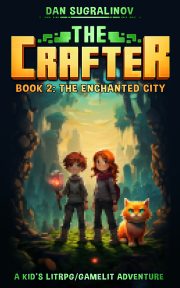Orphan Works: Science Fiction and Fantasy Writers of America Weighs In
Posted by Victoria Strauss for Writer Beware
The issue of orphan works–out of print, still-in-copyright books, films, photographs, etc. whose rightsholders can’t be found–is one that has been much in the news over the past few years.
Concern over a potential monopoly on orphan works was a major component of the criticism of the now-defunct Google Book Settlement, which sought to resolve authors’ and publishers’ objections to Google’s unauthorized scanning of in-copyright books.
Orphan works also played a major part in the Authors Guild’s recent lawsuit against a number of US universities, which combined digitized books–including unauthorized scans provided by Google–into a repository called HathiTrust. HathiTrust’s proposed Orphan Works project, which was intended to make the full text of selected orphaned books available for faculty and student download, was put on hold after the Authors Guild demonstrated that HathiTrust’s research process was flawed, and many of the books included in the project weren’t orphans at all. The courts subsequently ruled against the Authors Guild on the larger issue of the Google scans, deeming them fair use–but it didn’t address the question of orphan works.
Why should we worry about orphan works? A good summary of the importance of this issue is provided by former US Register of Copyrights, MaryBeth Peters:
The problem is pervasive. Our study recounts the challenges that publishers, film makers, museums, libraries, universities, and private citizens, among others, have had in managing risk and liability when a copyright owner cannot be identified or located. In testimony before the Senate, a filmmaker spoke of the historically significant images that are removed from documentaries and never reach the public because ownership cannot be determined. In testimony before the House, the U.S. Holocaust Museum spoke of the millions of pages of archival documents, photographs, oral histories, and reels of film that it and other museums cannot publish or digitize.
The problem has been created, in part, by the changing provisions of copyright. Copyright used to be dependent upon rightsholders’ obligation to register their works; if works weren’t timely registered or re-registered, they fell into the public domain. Now protection is automatic, with no need for registration, and the term of copyright has been extended far beyond authors’ lifetimes. The unintended result is a huge pool of orphan works–whose rights no one is managing, and whose content no one can use. (How huge? It’s estimated that in Europe alone, over 3 million books–13% of all in-copyright books–are orphans.)
The Science Fiction and Fantasy Writers of America has long been concerned with the issue of orphan works, and has just provided comments in response to the Copyright Office’s Notice of Inquiry on Orphan Works and Mass Digitization. I’ve reproduced a summary of SFWA’s comments below; the full statement (which includes a fascinating discussion of the efforts of SFWA’s Estate Project) can be seen here.
Science Fiction and Fantasy Writers of America, Inc. (SFWA)
P.O. Box 215
San Lorenzo, CA 94580
The problem with orphan works and the use of orphan works centers on the problem of determining when a work is truly orphan and the standards of due diligence required of the prospective user before a work can be used. The majority of the works that are now in question and are proposed to be orphan works are not, in fact, orphans by any reasonable definition.
We believe that the Copyright Office’s request for comments in this matter errs in suggesting a standard for declaring a work orphan when a “a good faith, prospective user cannot readily identify
and/or locate the copyright owner(s).” This standard is too low. While good faith is essential, there must be a standard of due diligence for any such search. We suggest that the Copyright Office’s 2005 language requiring “a reasonably diligent search” is more appropriate.
As a working definition, we suggest: “An orphan work is an original work of authorship for which a good faith, prospective user cannot locate the owner(s) of the publishing rights it seeks after a reasonably diligent search in a situation where permission from the publishing rights owner(s) is necessary as a matter of law.” For the purposes of this commentary, only textual works for which some or all of the publishing rights owners can be identified will be addressed, as SFWA believes that works in which there is no easily and inexpensively searchable identifying information, such as photographs, should be treated separately.
We believe there are several actions that the Copyright Office should undertake regarding orphan works.
A) The Copyright Office should define due diligence when it comes to the obligations of a prospective publisher of a work to undertake a reasonable search for the rightsholder. It should be made clear that such due diligence is necessary to determine if a work is, in fact, an orphan work. The initial assumption underlying any search for the rightsholder must be that there is a rightsholder who can be found, and not that the work is an orphan. The Copyright Office should use the rulemaking process to define due diligence.
B) The Copyright Office should establish an Author Information Directory containing author contact information and information about authors’ works. The Directory should draw upon existing records and allow authors to easily obtain a unique identification number, and should be searchable by anyone seeking to find a copyright holder. The same approach could be used for photographs and graphic works.
C) A process should be established, either through a rulemaking procedure or through statute, requiring payments for use of orphan works into an escrow fund managed by the Copyright Office or an organization it designates.
D) The Copyright Office should clarify and simplify the procedure for registering freelance contributions to periodicals, anthologies, and other collective works.
E) The Copyright Office should state, whether as part of a rulemaking on orphan works or otherwise, that failure to perform due diligence in attempting to find the rightsholder should be the most important factor considered when a court determines whether to award enhanced damages for infringement.
A sampling of other responses to the Copyright Office’s Notice of Inquiry:
National Writers Union
National Press Photographers’ Association
Carnegie Mellon University
Microsoft Corporation



